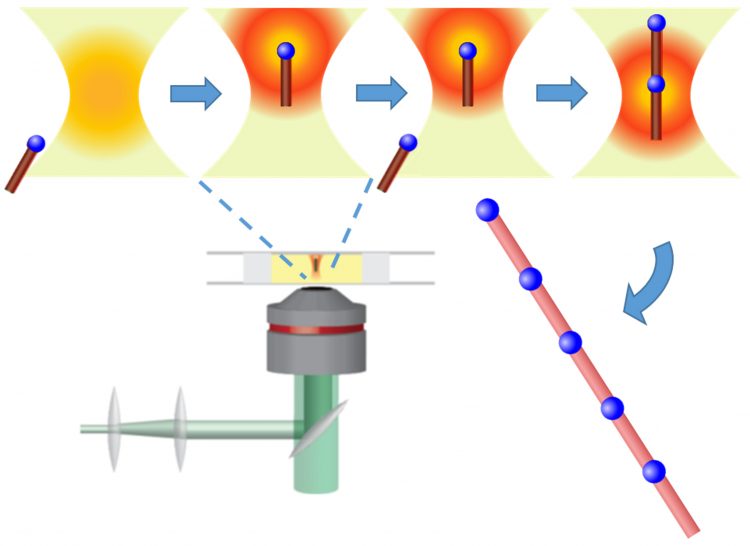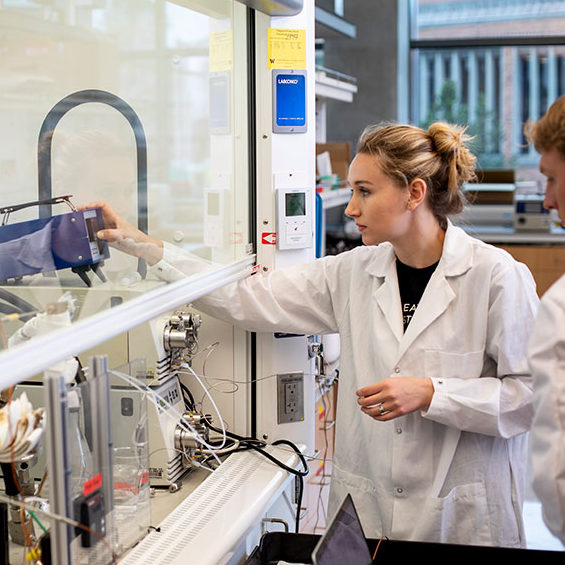A team led by NanoES faculty member Peter Pauzauskie, a professor of materials science and engineering, has developed a method that could make reproducible manufacturing at the nanoscale possible. The team adapted a light-based technology employed widely in biology — known as optical traps or optical tweezers — to operate in a water-free liquid environment of carbon-rich organic solvents, thereby enabling new potential applications.
Light-based ‘tractor beam’ assembles materials at the nanoscale

